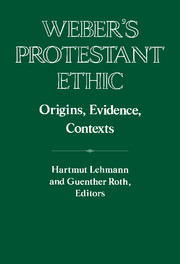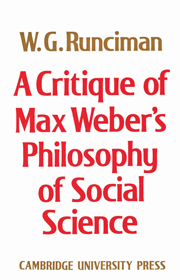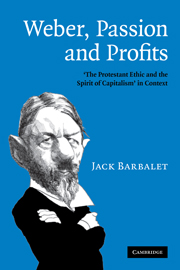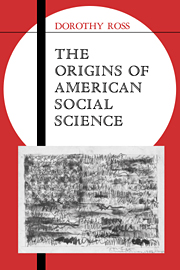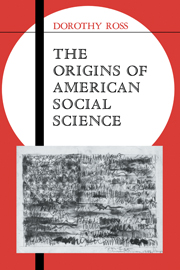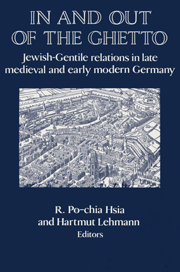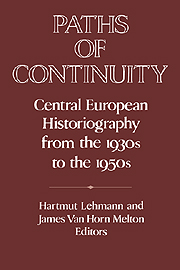Weber's Protestant Ethic
Although Weber's path-breaking work on the Protestant Ethic and the Spirit of Capitalism has received much attention ever since it first appeared in 1904-5, recent research has uncovered important new aspects. This volume, the result of an international, interdisciplinary effort, throws new light on the intellectual and cultural background of Weber's work, debates recent criticism of Weber's thesis, and confronts new historical insight on the seventeenth century with Weber's interpretation. Revisiting Weber's thesis serves to deepen our understanding of Weber as much as it will stimulate further research.
- A reassessment of the debate surrounding Weber's famous thesis on the Protestant ethic and the spirit of capitalism
- Debate continues to affect discussions on the 17th century and state of America and Europe before the first World War as well in the field of history of ideas
- Contributors include both American and European historians and sociologists
Reviews & endorsements
"...this volume represents a substantial contribution to the subject....The essays that deal with the context represent an especially welcome enlargement of information and insight for English-language readers of The Protestant Ethic who have until now lacked access to many of the German contextual materials." Contemporary Sociology
"...this interesting volume shows that in the Anglo-American context it has not entirely lost its capacity to stimulate reflection and research." Fritz Ringer, Central European History
Product details
July 1993Hardback
9780521440622
412 pages
229 × 152 × 27 mm
0.75kg
Available
Table of Contents
- Introduction Guenther Roth
- Part I. Background and Context:
- 1. The German theological sources and Protestant church politics Friedrich Wilhelm Graf
- 2. The thesis before Weber: an archaeology Paul Munch
- 3. Max Weber, Protestantism, and the debate around 1900 Thomas Nipperdey
- 4. Weber the would-be Englishman: anglophilia and family history Guenther Roth
- 5. Weber's historical concept of national identity Harry Liebersohn
- 6. Nietzche's monastery of freer spirits and Weber's sect Hubert Treiber
- 7. Weber's ascetic practices of the self Harvey Goldman
- 8. The Protestant ethic versus the 'new ethic' Klaus Lichtblau
- 9. The rise of capitalism: Weber versus Sombart Hartmut Lehmann
- Part II. Reception and Response:
- 10. The longevity of the thesis: a critique of the critics Malcolm MacKinnon
- 11. The use and abuse of textual data David Zaret
- 12. Biographical evidence on predestination, covenant, and special providence Kaspar von Geryerz
- 13. The thing that would not die: notes on refutation Guy Oakes
- 14. Historical variability, sociological significance, and personal judgement Gianfranco Poggi
- 15. The historiography of continental Calvinism Philip Benedict
- 16. The Protestant ethic and the reality of capitalism in colonial America James Henretta
- 17. The economic ethics of the world religions Helwig Schmidt-Glintzer
- 18. Meet me in St Louis: Troeltsch and Weber in America Hans Rollmann
- List of contributors
- Index.

